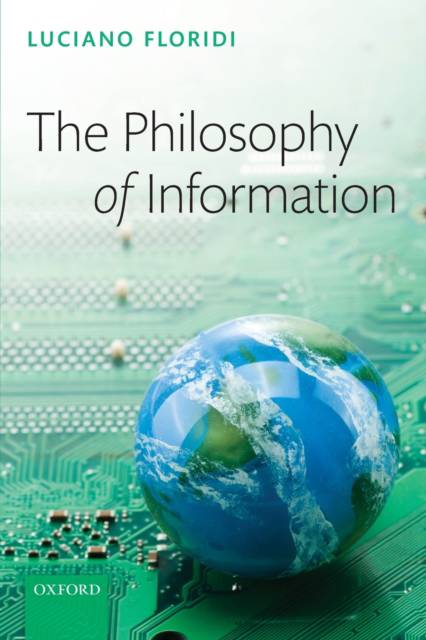
- Afhalen na 1 uur in een winkel met voorraad
- Gratis thuislevering in België vanaf € 30
- Ruim aanbod met 7 miljoen producten
- Afhalen na 1 uur in een winkel met voorraad
- Gratis thuislevering in België vanaf € 30
- Ruim aanbod met 7 miljoen producten
Zoeken
Omschrijving
Luciano Floridi presents a book that will set the agenda for the philosophy of information. PI is the philosophical field concerned with (1) the critical investigation of the conceptual nature and basic principles of information, including its dynamics, utilisation, and sciences, and (2) the elaboration and application of information-theoretic and computational methodologies to philosophical problems. This book lays down, for the first time, the conceptual foundations for this new area of research. It does so systematically, by pursuing three goals. Its metatheoretical goal is to describe what the philosophy of information is, its problems, approaches, and methods. Its introductory goal is to help the reader to gain a better grasp of the complex and multifarious nature of the various concepts and phenomena related to information. Its analytic goal is to answer several key theoretical questions of great philosophical interest, arising from the investigation of semantic information.
Specificaties
Betrokkenen
- Auteur(s):
- Uitgeverij:
Inhoud
- Aantal bladzijden:
- 432
- Taal:
- Engels
Eigenschappen
- Productcode (EAN):
- 9780199232390
- Verschijningsdatum:
- 1/03/2013
- Uitvoering:
- Paperback
- Formaat:
- Trade paperback (VS)
- Afmetingen:
- 155 mm x 231 mm
- Gewicht:
- 657 g

Alleen bij Standaard Boekhandel
+ 107 punten op je klantenkaart van Standaard Boekhandel
Beoordelingen
We publiceren alleen reviews die voldoen aan de voorwaarden voor reviews. Bekijk onze voorwaarden voor reviews.











